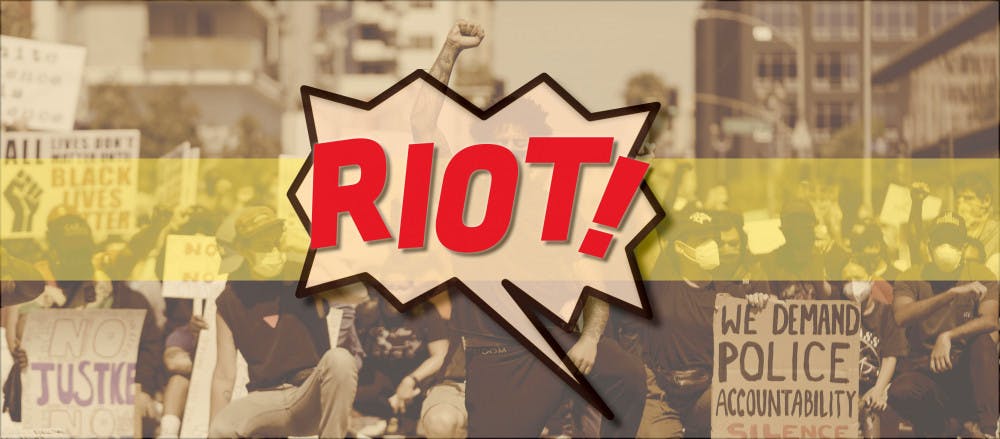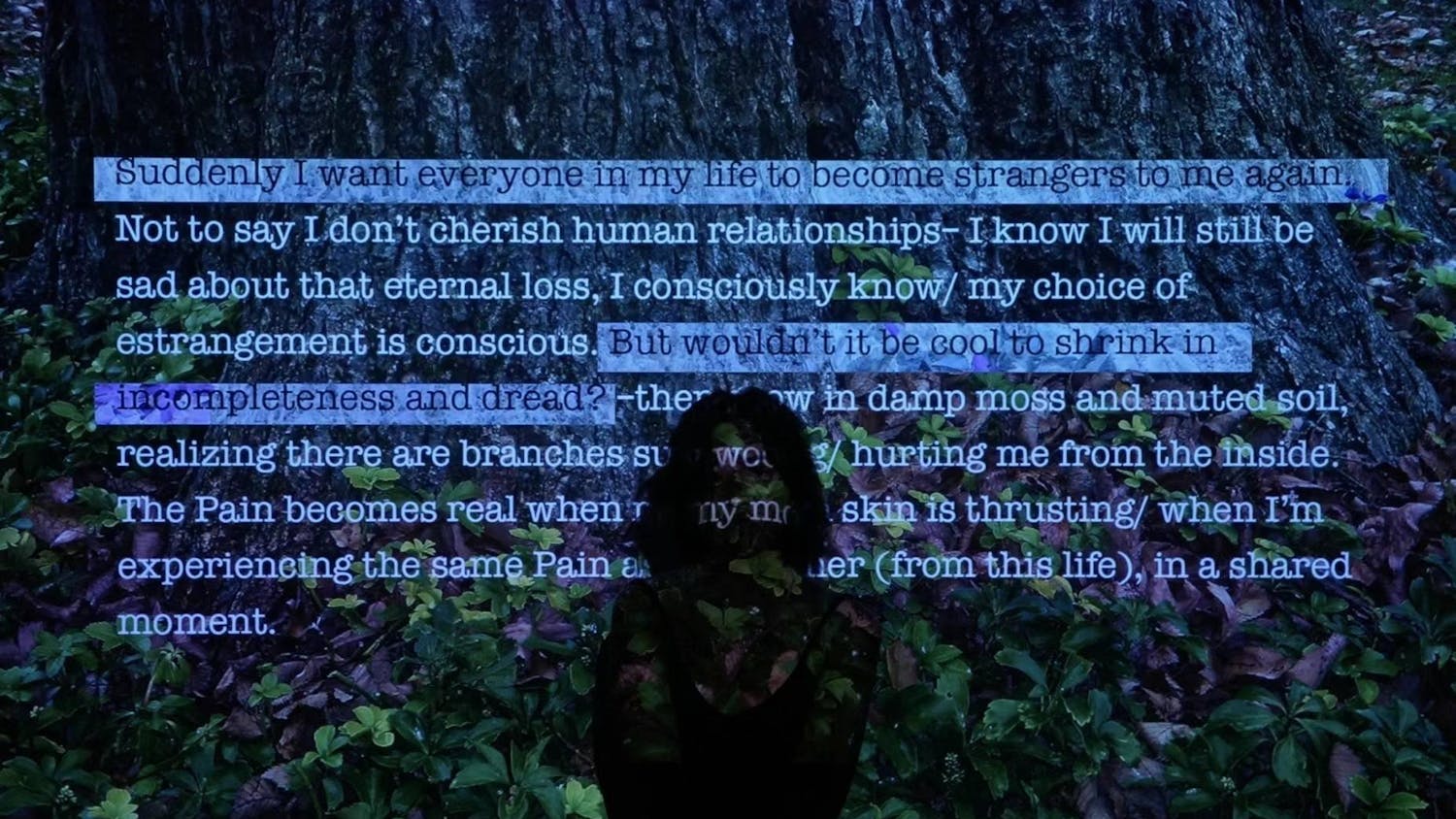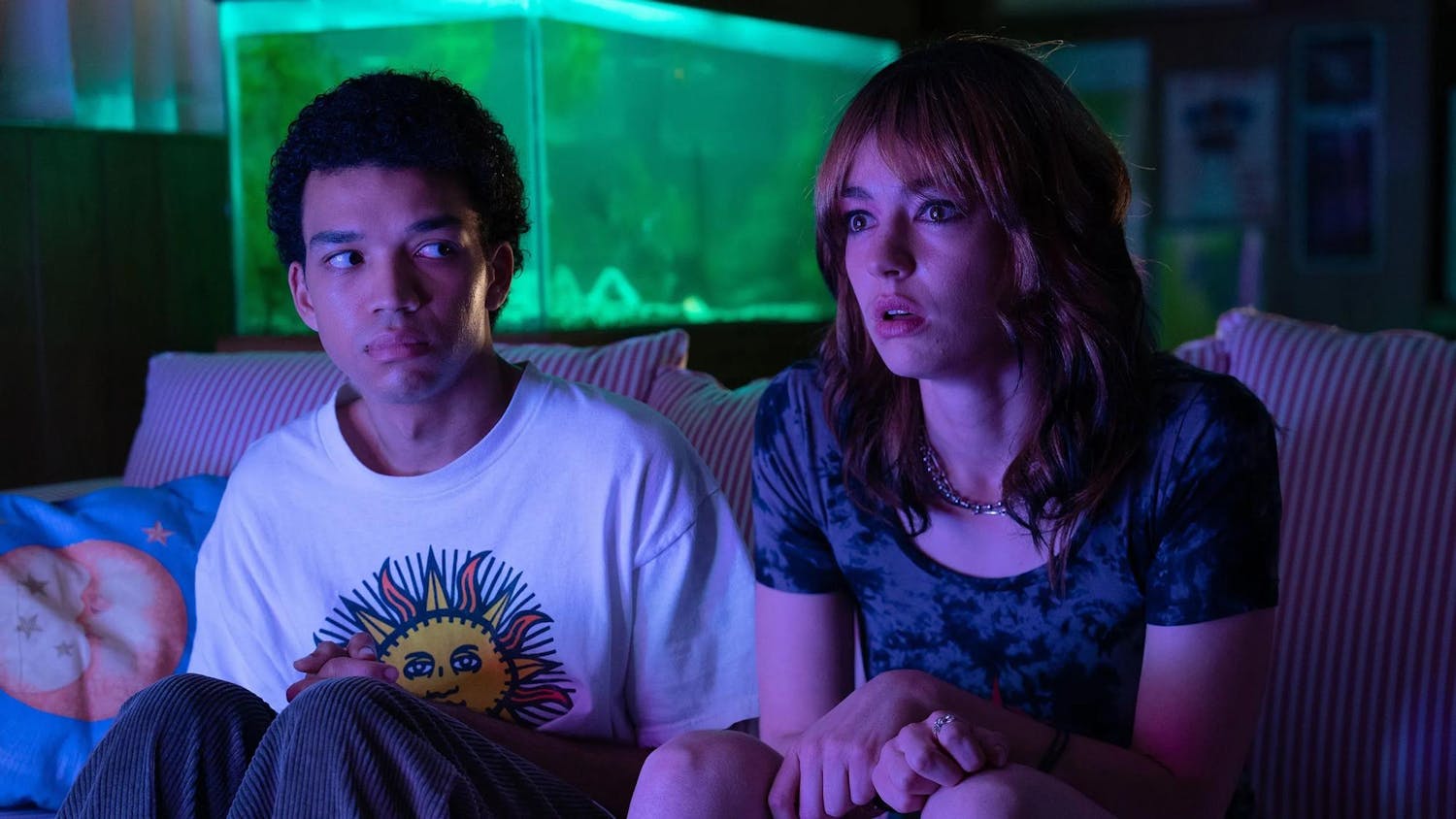The University’s Department of Africana Studies and Rites and Reason Theatre are currently accepting performance art submissions to incorporate into (R)esponse (I)n (O)ur (T)ime, a weekend long virtual event beginning Oct. 30.
“RIOT is a multimedia project that invites Brown University students to submit 90 second clips of themselves responding to our current moment in whatever artistic form feels right to them,” said Ellie Winter, communications and outreach coordinator for the department of Africana Studies. Students can submit “music, song, dance, story, rant, rap, scene, monologue, poetry (and) performance art” by the deadline of Oct. 26, according to RIOT’s website.
A compilation of student submissions will premiere during a live-streamed launch party on Oct. 30. Virtual events will continue throughout the rest of the weekend, featuring artist interviews and a DJ set.
“It is a call to art and a call to action,” said Lisa Biggs, assistant professor of Africana Studies. “It’s an opportunity for Brown students to really share what’s going on with them … what they’ve seen, what they’ve heard, what they’re pissed off about and what they want,” Biggs explained. “We wanted to get (the video) out before the election as a push, ra-ra, to get people to the polls.”
While the COVID-19 pandemic has made live performance difficult, “this project encourages loose, fun and fast performance art, and the understanding that anyone can participate in performance as a political tool,” Winter said. “To get the world we deserve requires disrupting the status quo. … Yes, journalists are telling this story, politicians are telling this story (but) I’m asking you to tell this story,” Biggs said.
The project’s website also features interviews with renowned artist and three-time National Poetry Slam champion Javon Johnson, playwright and dramaturg Jocelyn Prince and Nigerian indigenous performance artist Jelili Atiku.
Atiku explained that he sees his role in the project as “a form of mentorship … helping students to go deep into the dialogue and noise of the moment.” Along with examples of their art, the interviews with each artist are linked on the website for students to view.
“As an artist, one of my main responsibilities is to reflect on the issues around us … (to) consciously and consistently ask questions to the public about everything,” Atiku added. As an indigenous man from Nigeria, he views his artwork as closely tied to the theme of decolonization. “We all need to decolonize ourselves … and have an independent mind,” he said.
Johnson talked about his experience participating in the 1992 Los Angeles riots in his interview with Rites and Reason Theatre. “We tend to oversimplify these historical events,” Johnson said in the interview. While many view these as a response to the acquittal of the officers who killed Rodney King, Johnson recognizes them as the result of the buildup of “decades of frustration,” similar to the cause of the protests seen in 2020. Participating in these protests “was my first taste of political life … (It was) not voting (but) organization and protest,” he said. He has come to view these riots as “a necessary function of democracy … voting has failed us too often.”
Johnson began his journey writing poems about love, but as people began to listen to and even pay for his work, he started to write about the conditions of BlackAmericans in South Central Los Angeles: “police brutality … drug-infested neighborhoods … gang violence … poverty … (and) how the system railroads black families,” he said. He found that “people wanted to listen … and that was powerful.” He said that he hopes students will come to a similar conclusion as they record and submit their own RIOTs.
“We need to embed protest in our day-to-day lives,” Chicago-based playwright and Lecturer of Performance Studies at Northwestern University Jocelyn Prince told The Herald. Over the summer, Prince staged a 60-day peaceful protest performance on the North Side of Chicago entitled Honk For Justice.
After the viral impact of the murder of George Floyd, Prince noticed that while people were protesting in her home neighborhood on the South Side of Chicago, the primarily white and affluent residents of the North Side seemed to “go back to their day-to-day live(s) ... posting about the long lines at Whole Foods and talking about summer camp for their kids.” Seeing this, Prince decided that she wanted to increase visibility through peaceful protests, encouraging people to “make noise for justice” in neighborhoods that are less-directly impacted by police brutality.
Even though Prince focused largely on her home city, she said that “anyone can do it in their own neighborhood. They can get together with their families and neighbors and head out to whatever street corner with signs encouraging passersby to make some noise.”
“There was a playwright once who told me to write about things you’re obsessed with,” Prince said. “For me, the RIOT project has helped me reflect on what I created this summer … and reminded me that now is an important time for artists,” she added. “Throughout history art has been a major part of many social movements, protests, revolutions. It’s an integral part of social change.”

ADVERTISEMENT




